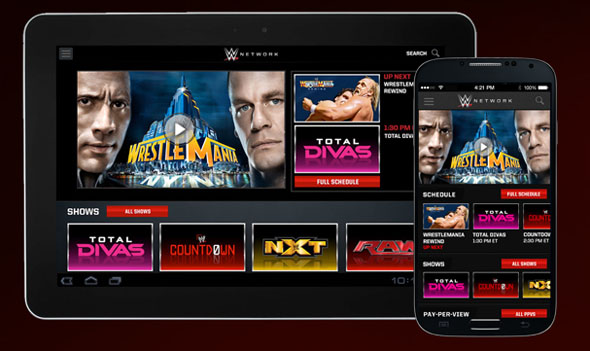EXCLUSIVE: The Sports Entertainment Business
July 26, 2016
Wrestling, or sports entertainment, poses an interesting question in blurring the lines between a sports event and a television product.
There is an obvious difference in terms of professional wrestling, seen at the Olympics, and ‘wrestling’ or sports entertainment, which sees pre-determined results but still evolves the physical sports element.
Eric Bischoff is very much a pioneer of the latter having been an Executive Producer and President of World Championship Wrestling, General Manager and Producer of World Wrestling Entertainment and Executive Producer of Impact Wrestling – it’s fair to say he has a little bit of experience in the field.
We sat down with Bischoff, to discuss the business of wrestling.
iSC: Firstly, how difficult was it to manage a Multi-million dollar wrestling company?
EB: “It’s intense, it’s challenging, it’s rewarding, it’s frustrating – it’s all of the above. I’m glad I had the opportunity to do it but at this stage of my life I wouldn’t be interested in doing it again.”
“I wouldn’t work to go back to hyper situations I was in when running WCW, but I love sports entertainment as a performer and a producer. I would love to get back involved once again, if the opportunity was right and there was a chance of it being successful.”
iSC: What do you think has been the biggest change in the industry over the last 30 years?
EB: “The biggest shift has been the television landscape. The television industry has grown significantly, it’s grown vertically – meaning there are a lot more cable outlets, but they are all owned by large conglomerates, so it has become increasingly difficult to find networks that are willing to host wrestling as part of their programme schedule.”
“The industry has become larger but the wrestling side of the industry has got much more difficult for smaller producers. That’s why essentially you have a monopoly in the industry, not an intentional monopoly, but the WWE controls around 97% of the television market.”

iSc: What works best within the industry – some companies are stationed at one base while others travel to other arenas, which of these models brings the most success in your opinion?
EB: “One of the reasons wrestling has endured as a property is because it regularly tours large and small markets. Sports don’t typically perform live in smaller markets, but wrestling is one of those properties where if you live in a small town, then you probably have access to see the same people you see on television each week at a local venue.”
“I think that builds a unique relationship between the property and the audience. In Sports Entertainment, the audience is as important to the program as the action that actually takes place, so you produce the event to capture as much reaction and emotion from the audience, as you do action in the ring. That’s probably not as true with other forms of entertainment.”
iSc: What would you change about the current products being made, having been at the top of the industry, what would you say needs to be improved?
EB: “I watch WWE and I’m a fan of WWE, but as a fan and former producer, I see things that I would do differently. For me it’s a little bit too glossy, it’s almost too produced. As a result It loses its spontaneous feel.”
“What I found is that wrestling fans love the sense that anything can happen. It’s alternative television. The observation that I have now, is that you lose that sense that something unpredictable can happen. I don’t sense that because of the way it’s produced. I would look for a more organic, gritty way to give it that alternative feel to it.”
iSc: You appear to be working on a lot of business projects at the moment, tell us about some of those?
EB: “My business partner and I have our own TV production company. We have two shows that are in production right now and several others at other stages. We also have a gaming company and actually we have some product that we distribute into the UK through William Hill.”
“We also have a small brewing company, which is distributed through the Rocky Mountain area of the US. We’re currently looking at launching a digital channel that will incorporate sports entertainment or wrestling. We are doing a lot at the moment, which are branded entertainment types of products and issues.”

iSc: You mention working within the digital space, is that something that has been influenced by the WWE Network which has proved both lucrative and successful for the WWE?
EB: “The WWE network is an example of a hugely successful digital project but there are many smaller digital wrestling initiatives that are successful as well. Digital platforms are the future of entertainment whether it’s sports or general entertainment.
“So we’re like everyone else in the industry, migrating towards digital platforms and trying to find a way to take advantage of our experience and knowledge and production capabilities to break into that market.”
iSc: The 90s was a ‘boom period’ for wrestling with the so-called ‘Monday Night Wars’ pitting your company WCW against the WWE, would that have been different in today’s world with more platforms than ever before?
EB: “It’s a difficult question, it’s a good question but it’s hard to answer. The Monday Night Wars occurred because of unique timing; unique timing in the TV industry, in sports entertainment and it would be hard to create them circumstances again.”



